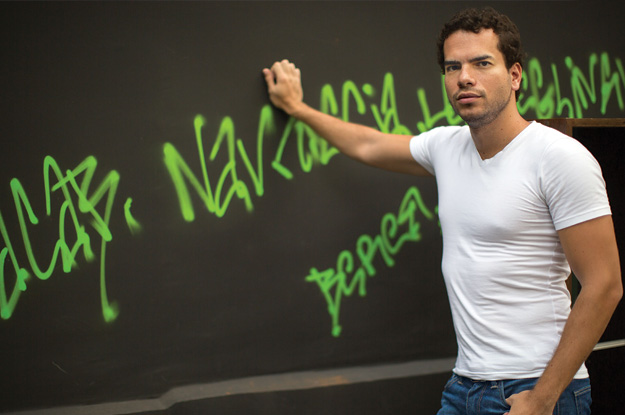See the rest of the AQ Top 5
“I can’t talk right now” Brazilian mathematician Artur Avila murmured into the phone. “I’m in Brasília to carry the Olympic torch.” When AQ contacted him the next day, he warned the conversation would have to be short because he was running late for the screening of a new documentary about himself.
Seems like everyone has wanted a piece of Avila since 2014, when he became the first Latin American to win the prestigious Fields Medal, considered the Nobel Prize of mathematics, for his groundbreaking contributions to a field known as dynamical systems. And justifiably so. His story is unique not just for his improbable rise from Brazil’s uneven education system, but because of how he did it with a certain Brazilian flair. He looks more like a tanned surfer than the stereotypical nerdy mathematician, and he has a reputation for problem-solving during late-night meditations or strolls along the beaches of Rio de Janeiro.
“I like to walk and think,” Avila, 37, said. Avila was born a mathematician. He knew as young as “four or five years old” that he had a gift for math—that it was easier for him than for others — and his gift was noticed early by Rio’s world-renowned National Institute for Pure and Applied Mathematics (IMPA), which organizes an annual math Olympiad. Avila won the national competition and went on to take the gold medal at the International Mathematical Olympiad in Toronto at age 16, which helped him earn a scholarship to IMPA. He earned his Ph.D. at 21 and is today on the institute’s staff.
“He has an amazing capacity for concentration,” said IMPA Director-General Marcelo Viana, who taught one of Avila’s first classes on dynamical systems, an interdisciplinary form of mathematics that creates models to describe real-life events such as oscillating pendulums or animal population changes.
Viana came to know Avila better in 2002 when they shared an office at the Collège de France in Paris, where Viana was a visiting professor and Avila had just finished a postdoc. “I rely more on paper and pencil to think,” Viana said. “He is somehow able to build ideas in his mind. He seems to be more capable of doing it in a purely mental way.”
Since then, Avila has pushed dynamical systems into new areas, most notably in using so-called Schrödinger equations to understand the subatomic properties of electrons. He focused on something called the “10-martini” problem (known as such because a mathematician once offered 10 martinis to anyone who could solve it), which entailed proving whether the spectrum of one specific Schrödinger operator matched a fractal known as the Cantor set.
“Until Artur joined the game, the study of the behavior of Schrödinger equations was coming to a standstill,” said Viana. “Artur brought in ideas from dynamical systems, and in a sense he revolutionized the whole field.”
All of which helps to explain why winning the Fields Medal in 2014 made Avila a household name in Brazil and a role model for the next generation of mathematicians. Carrying the Olympic torch ahead of the 2016 Rio Summer Games was just the latest honor for someone who, in Viana’s words, “is already kind of a superhero.”
—
Kurczy is a special correspondent for AQ based in Rio de Janeiro





